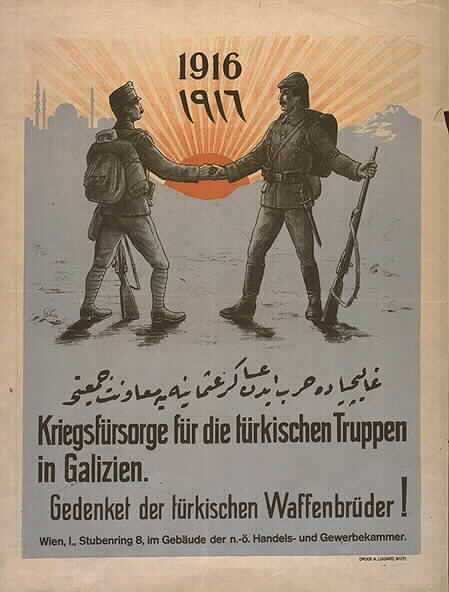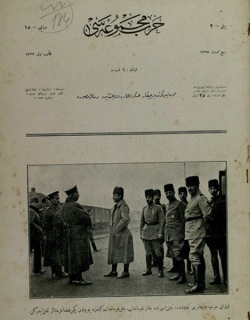How much damage could the closure of the Suez Canal do to Entente shipping?Yet for the entire campaign combined casualties on both sides number roughly 70,000 and the Austrians can gain points with what is likely to become the world's leading oil power. Jerusalem fell only at the end of 1917 and is what, 60-ish miles to Gaza and the antebellum frontier? From there the main question is logistics and getting to the Suez which is probably about twice that distance or roughly 120 miles farther. Bomber aircraft might be able to reach the canal at that point as well.
You are using an out of date browser. It may not display this or other websites correctly.
You should upgrade or use an alternative browser.
You should upgrade or use an alternative browser.
WI: CP's Victory at Monte Grappa
- Thread starter Talus I of Dixie
- Start date
That would be for 1915 or 1916, right? By 1917, Most of Austria-Hungary’s army was in Italy, because Russia was in turmoil.@Lee-Sensei After a quick digging, I actually found some numbers for the active army from the beginning of 1917. According to Galántai József's: The First World War, Austria-Hungary had 3,5 million men in 71 infantry and 11 cavalry divisions within its army at the the time. 41 infantry and 11 cavalry divisions served on the Eastern Front, 28,5 infrantry divisions on the Italian Front and 1,5 infantry divisions on the Balkans.
Coulsdon Eagle
Monthly Donor
Yes, you're right. That's the number of all mobilised men by the end 1917. A good portion of those are already killed, captured or permanently injured, but given that many former POWs could return to the army now that both Russia and Italy gets out of the war, I felt that number is a good indicator atleast. The fact, that I don't know the exact number of active troops in 1917 also propelled me to use that figure. Sorry for the disinformation.
Many of the POWs were suffering from conditions such as typhus & cholera when they returned OTL, and even worse - Bolshevism.
Like I wrote, beginning of 1917.That would be for 1915 or 1916, right? By 1917, Most of Austria-Hungary’s army was in Italy, because Russia was in turmoil.
The Austrian army wasn't equipped for a desert campaign nor would they want to participate in one. The Ottomans aren't likely to be leading the world in oil while being cut off from world markets and having permanently lost control of the Arabian peninsula and Southern Iraq to the Entente. Austria would probably try to make a separate peace while they still had the chance.Yet for the entire campaign combined casualties on both sides number roughly 70,000 and the Austrians can gain points with what is likely to become the world's leading oil power.
Bombers couldn't do a thing to the Suez Canal in World War 1.Bomber aircraft might be able to reach the canal at that point as well.
Well whithout Amiens the railroad network cannot support the bef north of the mouth of the somme, the British army thought that in order to leave in time not to be crushed they would have to leave behind 90% of there heavy equipment (artillery ect.) Which would at the very least precluded any offensive action until 1920, it would also mean the loss of the last place of Belgium left and be a huge blow to moral that the place so much propaganda had used in order to gustavie British losses in the war would gust be given up, plus the loss to the pa de cale coalfields would me the Paris factory's (still the largest and most numerous) would be closed do to a lack of coal.The Italian Front was much closer to the Western Front than the Eastern Front was and the the German forces were withdrawn from there earlier. If I'm not mistaken, most of those forces participated in Operation Micheal as part of the 17th Army.
Amiens sure was important, but that might be a bit of strong claim. Otherwise, what the Germans really lacked during Operation Michael were fast mobile forces, which could capitalise on the breakthrough. Since tanks and armoured cars weren't really an option for them, I'm talking about cavalry. Maybe Austria-Hungary could provide some cavalry divisions?
So yes the loss of Amiens would be a huge blow if not a completely fatal one.
History Learner
Banned
So...
1. The Italians drop out of the war and demobilise.
2. The Austro-Hungarians occupy all of Veneto and seize as much of their weaponry as they can.
3. Austria-Hungary demobilises a small portion of its army to revitalise its economy.
4. Treaty of Brest-Litovsk, the militarily much less dependent Austria-Hungary successfully asserts itself in the matter of the Kholm region, which is given to Poland.
5. 15-20 K.u.K divisions are sent to the Western Front to aid the Germans' Spring Offensives, 5 divisions are sent to Macedonia to help the Bulgarians and apart from occupying forces and a small strategic reserve, Austria-Hungary demobilises its excess forces.
6. During Operation Micheal, Germans manage to capture Amiéns with the utilisation of the Austro-Hungarian cavalry. ('cause why not?)
What happens next?
Central Powers win the war, as the BEF is rendered incapable of supporting the French, and their lines are now disconnected anyway forcing the French Army to abandon most of Northern France. Without the coal of the bethune mines, French war production collapses by around 70% and thus we get a stalemate peace.
What you describe isn't quite a stalemate peace though. Were the bethune mines really that important? They were partially occupied by the Germans in 1914 already and the local infrastructure was under constant bombardment throughout the war. I know the area provided around 70% of the pre-war coal production of France, but I was under the impression, that its significance diminished during the war. Otherwise, can't Britain supply the French with coal? They had plenty.Central Powers win the war, as the BEF is rendered incapable of supporting the French, and their lines are now disconnected anyway forcing the French Army to abandon most of Northern France. Without the coal of the bethune mines, French war production collapses by around 70% and thus we get a stalemate peace.
marathag
Banned
Gotha Bombers were not so far different from what Mitchell used to attack BattleshipsBombers couldn't do a thing to the Suez Canal in World War 1.
That was against a stationary ship not fighting back. The Suez Canal is downright impossible to destroy with the bombers available in 1918.Gotha Bombers were not so far different from what Mitchell used to attack Battleships
marathag
Banned
Not much AAA on WWI ships, and not a lot of room to maneuver, the Canal wasn't widened much till after WWIIThat was against a stationary ship not fighting back. The Suez Canal is downright impossible to destroy with the bombers available in 1918.
At Maximum depth, narrow areas the channel was only 40 yards wide before that
I don’t think so. The Middle East was a tertiary theatre. If the Austro-Hungarians had troops to spare, they’d likely be sent to the Western Front.So in the end, reinforcing the Ottomans in Palestine really is unlikely, right?
Last edited:
Where does that idea come from? Here's a picture of Austro-Hungarian troops in Jerusalem, thousands went there under German command to tdo precisely that - reinforce the Ottomans. Meanwhile the primary focus was elsewhere so it stayed at "thousands" and not "tens of thousands".So in the end, reinforcing the Ottomans in Palestine really is unlikely, right?

Unless A-H secures a separate peace - it's certainly possible as they're not part of the old Franco-German spat or British concerns about Belgium (officially) and German industrial might (inofficially), the Turkish front will be number 2 of the places where forces can be redirected to until victory or favorable negotiated peace settlement. Number 1 is the Western Front but there's only so many soldiers you can push into that small part of the world. Rail connection exists from Vienna all the way to Aleppo, logistics is a lot easier for them than for the British and French and unlike the Turks they can put up a fight thanks to having modern war materials.
The rail line has a break in Turkey but otherwise goes almost all the way to Gaza with a section under construction to connect to Egypt via the Sinai...Where does that idea come from? Here's a picture of Austro-Hungarian troops in Jerusalem, thousands went there under German command to tdo precisely that - reinforce the Ottomans. Meanwhile the primary focus was elsewhere so it stayed at "thousands" and not "tens of thousands".

Unless A-H secures a separate peace - it's certainly possible as they're not part of the old Franco-German spat or British concerns about Belgium (officially) and German industrial might (inofficially), the Turkish front will be number 2 of the places where forces can be redirected to until victory or favorable negotiated peace settlement. Number 1 is the Western Front but there's only so many soldiers you can push into that small part of the world. Rail connection exists from Vienna all the way to Aleppo, logistics is a lot easier for them than for the British and French and unlike the Turks they can put up a fight thanks to having modern war materials.

Jezreel Valley railway - Wikipedia
Seems like i was strictly looking at the Berlin-Baghdad railway, my mistake.The rail line has a break in Turkey but otherwise goes almost all the way to Gaza with a section under construction to connect to Egypt via the Sinai...

Jezreel Valley railway - Wikipedia
en.m.wikipedia.org
Instead Turkey could pull their own forces from European theaters.So in the end, reinforcing the Ottomans in Palestine really is unlikely, right?

XV Corps (Ottoman Empire) - Wikipedia

Romania - Turkey in the First World War
Before the World War broke out, Romania essentially consisted of three parts: Walachia, Moldavia and Dobruja. The first two regions had a more or less homogeneous population of Romanians, whereas Dobruja had an ethnically heterogeneous population with a significant amount of Muslims and a...
 www.turkeyswar.com
www.turkeyswar.com
Wouldn't shoring up of the Salonika front and demobilizing some of the army to get the economy more back on track be a better use for the Austrians? Or even helping the Germans in the west?
Share: